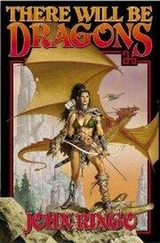Hifa was a woman. I went back to bed, and that was my first day on the Wall.
On the Wall, one day is every day. At least, it is in terms of the big-picture items such as the shape of the twenty-four hours, your duties, where you go and what you do and who you do it with. Lots of variation within that, but the architecture of the days is the same. That’s the way you want it to be, too, because on the Wall, any news is bad news. They’re never going to say, guess what, the Others have stopped coming and you can leave the Wall now. Guess what, we’ve decided we like your face and you don’t have to do two years on the Wall, in fact you can leave tomorrow, in fact, wait, why not, you can leave right this minute! Off you go! Wait, you forgot your cookies!
That’s not going to happen. The only things that can happen are bad things. So you want nothing to happen. Except it’s more complicated than that. Somewhere in the dark cave-mind there’s a gremlin, saying, But wouldn’t it be interesting if something did happen, if they came, if you had to fight for your life, if you had to do that thing you dread and train for, have nightmares about but maybe just are a tiny bit curious about too, and you have to kill or be killed? Wouldn’t it be better to do that, to feel something other than cold and hunger and boredom and fatigue? Wouldn’t it be exciting to use that bayonet you clamp on your gun every morning? You’ll get to find out something about yourself, what you are like when the worst happens. Whether you are still you.
Only the louder and stupider Defenders will ever talk about this, but we all think about it. We half-fantasise about the worst that could happen.
Mostly, though, what happens is nothing, and mostly, that’s the way we like it. My first two weeks on the Wall were like that. Every day was the same as the first day, with the main variable being the weather. Most days were about as cold as the first. Two were warmer – not warm enough to be warm but warm enough to go out with one layer less. One day was type 2 cold, dangerously cold, frighteningly cold, but the weather forecasters had told us it was coming and we were prepared. The really lethal cold is the kind that comes on when you aren’t expecting it.
I saw the same people every day, the members of my squad. I walked out to the wall with Shoona and Hifa and we had lunch together. The nickname Chewy, I am sorry to say, stuck. Yos and the Sergeant took turns pointing out things I was doing wrong, things I could do differently, things to watch out for. I realised that this was ongoing training, and though I didn’t like being found fault with all the time, I could see why they were doing it. Shoona began to tease me and Hifa about being an item, singing ‘Hifa and Chewy sitting in a tree, k-i-s-s-i-n-g.’ There was nothing personal about the teasing, it was almost pro forma: if a male Defender and a female Defender were in any way friendly to each other, if they were anything other than fridge-temperature indifferent, they could expect to be accused of being ‘at it’. In this case, though, Shoona was on to something, because I was starting to have thoughts about Hifa. Even though I had never seen her in anything other than multiple layers of baggy clothing. Actually, maybe that was part of what was getting my attention – looking at all those shapeless clothes, it was hard not to wonder about the shape underneath them … formlessness which you know isn’t really formlessness, which you know for sure has a definite shape, an unmistakable glow … and also, it is a conclusive human truth that the only thing which makes the time pass better than daydreaming about food is daydreaming about sex. So, yes, Hifa and Chewy, but not necessarily sitting in a tree, k-i-s-s-i-n-g.
One day the Sergeant properly yelled at me, when he made an impromptu inspection and found that I didn’t have my spare ammunition rigged correctly. He was right: there was a particular manner in which we were supposed to do it, magazines folded back over each other in a set sequence, which made it quicker to load the ammo in combat, but it was laborious and boring to do, and so I sometimes skipped it.
There was nothing particularly unusual about being shouted at, so that wasn’t the main point of interest. The thing which made me focus was what Sarge said when he’d calmed down a little.
‘You’re lucky it was me,’ he said. ‘The Captain sees that, you get extra days on the Wall. That thing you did right there, that’s an extra two weeks on the watch. You want that?’
It didn’t seem to be a rhetorical question. I had to admit that no, I did not want that.
‘I didn’t think so,’ said Sarge. ‘Most people, their bark is worse than their bite. For pretty much everybody, that’s true. Their bark is their bite. Yelling or bollocking or calling you names is the worst they’ll ever do. Not him. His bite is worse than his bark. You don’t have to worry about him giving you a bollocking. You have to worry about him doing you real damage. Bite, not bark. Do you get it?’
I said that I thought I did. That didn’t seem good enough, and Sarge came closer, confidentially close, as if we were in a crowded pub and he was whispering a secret, not as if we were on the Wall, in the middle of nowhere, two hundred metres from the nearest human ears.
‘I’ll tell you something about the Captain. It’s not a secret, but it’s something he prefers to tell people for himself. When he does tell you, do me a favour and act like it’s a surprise.’ He looked around, as if he was worried about eavesdroppers, and he lowered his voice so that I could barely hear him over the wind. ‘The Captain was an Other. He got here ten years ago, before the laws changed. That’s why he’s so hardcore. That’s why he’s so strict. He knows what it’s like out there. He knows he’s not going back. He’s done four turns on the Wall because he’s obsessed with keeping them out and proving he is worth being allowed to stay.’ He let it sink in then hissed: ‘The Captain was an Other!’
It was one of those things you’re told which make no sense and at the same time you immediately know, right down in your cells, are true. The Captain was an Other! Of course he was. Until about ten years ago, Others who showed they had valuable skills could stay, at the cost of exchanging places with the Defenders who had failed to keep them out. The law was changed because this fact became known to Others and started to act as a ‘pull factor’, a reason they came here. Now, today, Others who get over the Wall have to choose between being euthanised, becoming Help or being put back to sea. There’s no escape and no alternative, now that everybody in the country has a chip: without one, you’d last about ten minutes. So even if they get over the Wall and then get away, they’re always caught and offered the standard choice. Almost all of them choose to be Help. The attraction is that if they have children, the children are raised as citizens. That’s after being taken away from their parents, of course. Others tend to be Breeders. You see the kids all around the place, often with older parents, or parents who are a visibly different ethnicity from their children. The Captain must have been one of the last to get through before the new laws. No wonder he was a fanatic. No wonder his bite was worse than his bark. His scars were tribal scars, and yet he had left behind his tribe and was now a Defender, one of us.
‘I get it,’ I said to Sarge. ‘I get it.’ I refolded the magazines of ammunition, the way I had been taught to do it, while he watched. The Captain used to be an Other … of course, of course, it made complete sense. There was something abnormal about his implacability. It was easier to understand once you started to think about the things he must have seen, the things he must have done. That day was the last time I cheated or took a short cut or cut a corner or did anything not one hundred per cent by the book. I became Mr Rules. I realised that even though I was on the Wall, a part of me had been assuming there were still small human margins here and there, room for interpretation, space for forgiveness or acceptance or, less nobly, the chance to talk yourself out of any trouble you might have got yourself into. I now saw that that was wrong. No leeway, no space, nothing but black and white, the rulebook or anarchy, nothing but the Wall and the Others and the always waiting, always expectant, entirely unforgiving sea.
Читать дальше












